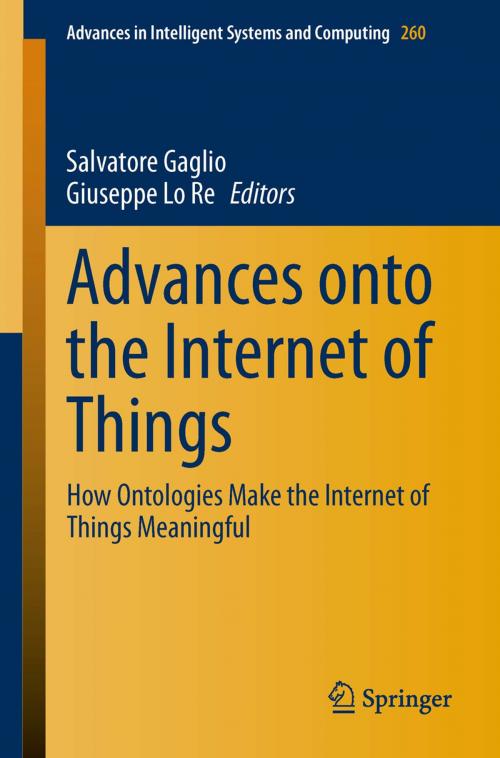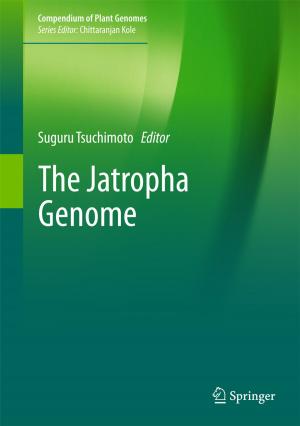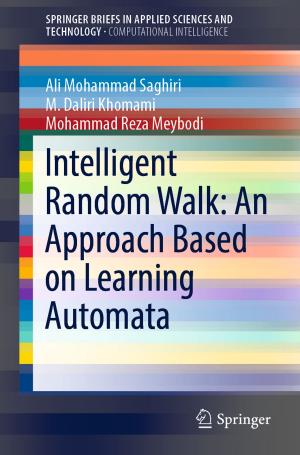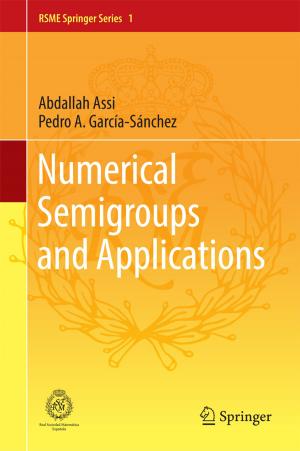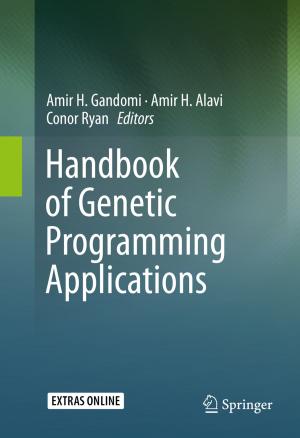Advances onto the Internet of Things
How Ontologies Make the Internet of Things Meaningful
Nonfiction, Science & Nature, Technology, Telecommunications, Computers, Advanced Computing, Artificial Intelligence, General Computing| Author: | ISBN: | 9783319039923 | |
| Publisher: | Springer International Publishing | Publication: | December 31, 2013 |
| Imprint: | Springer | Language: | English |
| Author: | |
| ISBN: | 9783319039923 |
| Publisher: | Springer International Publishing |
| Publication: | December 31, 2013 |
| Imprint: | Springer |
| Language: | English |
The title of this book is a pun on the use of the preposition “onto” with the aim of recalling “Ontology”, the term commonly adopted in the computer science community to indicate the study of the formal specification for organizing knowledge.
In the field of knowledge engineering, Ontologies are used for modeling concepts and relationships on some domain.
The year 2013 celebrates the twentieth anniversary of the World Wide Web. The simple network of hypermedia has transformed the world of communications with enormous implications on the social relationships. However, traditional World Wide Web is currently experiencing a challenging evolution toward the Internet of Things (IoT), today feasible thanks to the integration of pervasive technologies capable of sensing the environment.
The most important contribution of IoT regards the possibility of enabling more efficient machine-to-machine cooperation. To such aim, ontologies represent the most suitable tool to enable transfer and comprehension of information among computer applications, even those designed and developed by unrelated people in different places.
This book proposes a collection of contributions illustrating different applications following these directions and that are the outcomes of real experiences developed in the context of research projects.
The title of this book is a pun on the use of the preposition “onto” with the aim of recalling “Ontology”, the term commonly adopted in the computer science community to indicate the study of the formal specification for organizing knowledge.
In the field of knowledge engineering, Ontologies are used for modeling concepts and relationships on some domain.
The year 2013 celebrates the twentieth anniversary of the World Wide Web. The simple network of hypermedia has transformed the world of communications with enormous implications on the social relationships. However, traditional World Wide Web is currently experiencing a challenging evolution toward the Internet of Things (IoT), today feasible thanks to the integration of pervasive technologies capable of sensing the environment.
The most important contribution of IoT regards the possibility of enabling more efficient machine-to-machine cooperation. To such aim, ontologies represent the most suitable tool to enable transfer and comprehension of information among computer applications, even those designed and developed by unrelated people in different places.
This book proposes a collection of contributions illustrating different applications following these directions and that are the outcomes of real experiences developed in the context of research projects.
